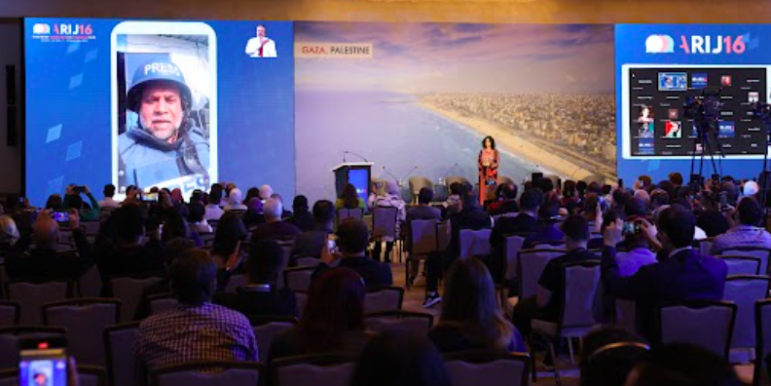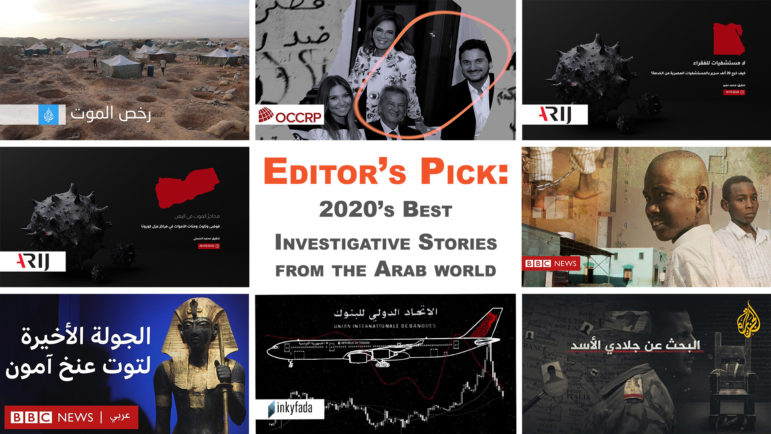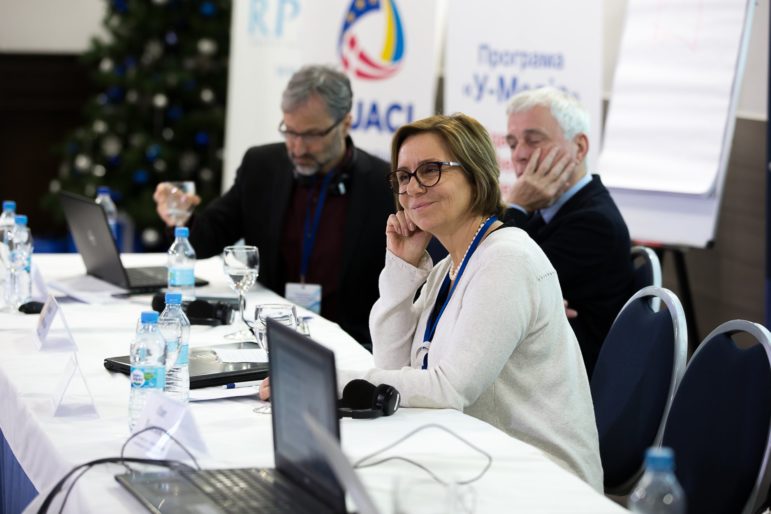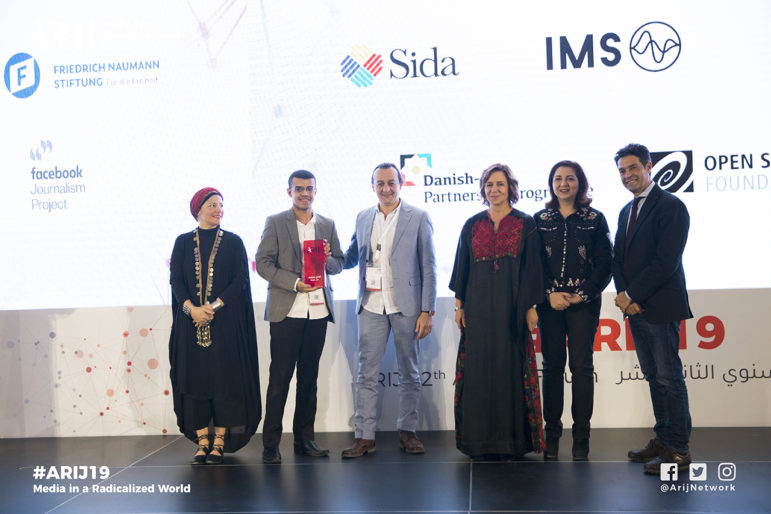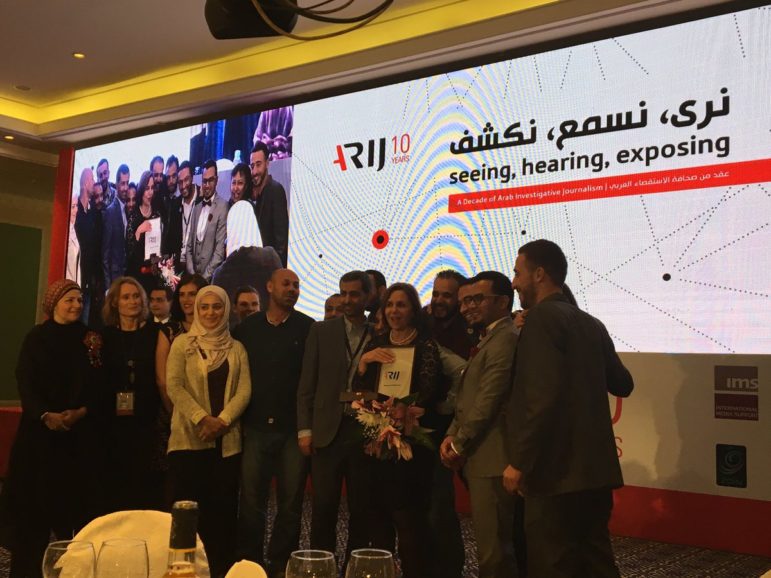

2016 ARIJ Prize Winners Showcase Courageous Work under Pressure

Arab Reporters for Investigative Journalists (ARIJ) celebrates its 10th anniversary along with the work of the 2016 ARIJ Prize winners.
Five Arab journalists who exposed torture and injustice in their societies won the 2016 ARIJ Prizes at the 9th Arab Reporters for Investigative Journalism (ARIJ) forum during a gala dinner on Dec 3. The ARIJ Prize is an annual award given out at ARIJ’s yearly forum to individuals or teams of journalists for the best written, visual, or cross-border investigative publication or broadcast under ARIJ‘s supervision.
Britain’s Paul Eeedle, who headed the prize judging committee, said the jurors were encouraged by the range and depth of the 39 investigative stories submitted at a time of great pressure on media freedom across the region. Winners of the award hailed from Jordan, Tunisia, Egypt and Yemen.
“Journalists have identified important stories and tackled them with courage and dedication,” Eedle observed. “The juries admired the depth of human feelings in many of the stories, although they also want to caution journalists against emotional language: an investigative story convinces its audience through solid facts and by looking at all sides of an issue, not by arguing for a point of view. In each category, there were several stories which could have won the prize and it was very difficult to choose between them. All those shortlisted for the prizes should feel extremely proud of their work.”
The 2016 ARIJ Prize winners are:
Best Print Investigation
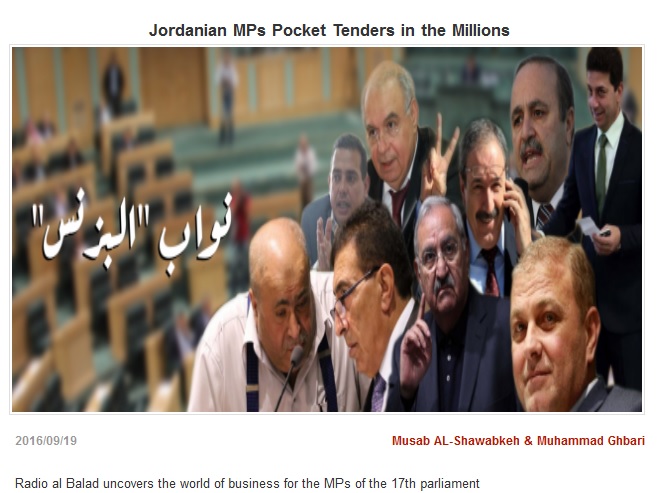 Jordan’s Musab Shawabkeh, head of the investigative unit at Radio Balad, and Mohammad Ghabari won the prize for the story “Business Deputies.” Shawabkeh, a four-time ARIJ prize winner, and Ghabari exposed how deputies in the Jordanian parliament won public tenders worth millions of dollars in return for collusion with the government to pass laws and unpopular policies.
Jordan’s Musab Shawabkeh, head of the investigative unit at Radio Balad, and Mohammad Ghabari won the prize for the story “Business Deputies.” Shawabkeh, a four-time ARIJ prize winner, and Ghabari exposed how deputies in the Jordanian parliament won public tenders worth millions of dollars in return for collusion with the government to pass laws and unpopular policies.
Best Short Film
Yemen’s Abdulwali Mathabi won the prize for his short film “Dead without Graves.” Using official documents, he showed how corpses are piling up at hospital morgues, sometimes for seven years, because of bureaucracy or in cases where the dead are implicated in criminal cases.
Best Long-Form Film
Mostafa Marsafawi, from Egypt, won best prize for his long form film “Death in Service” which was screened on the BBC in English and Arabic. In his investigation, he finds that cadres of the Central Security Forces were abused and even killed by their superiors, while state institutions and the judiciary turn a blind eye against these systematic violations. The investigation triggered a wave of criticism among pro-government media in Egypt and prompted the dismissal of Marsafawi from his job at a local paper.
Best Cross-Border Investigation
Saadah Abdul Qader from Egypt and Najwa Hamami from Tunisia won the special ARIJ prize for best cross border investigation “Upside Down.” Both journalists engaged in a four-month effort to expose how governmental authorities entrusted with caring for the injured of the 2011 revolutions and the families of martyrs in Egypt and Tunisia violated their legal rights, psychological needs, and medical treatment. This is Abdul Qader’s third prize with ARIJ.
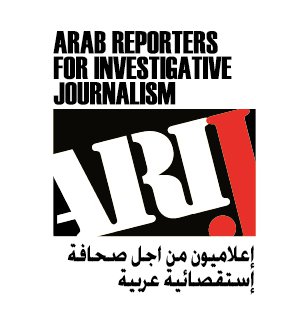 ARIJ is the Arab region’s leading media support organisation spreading the culture of accountability in nine Arab states since 2005. The 9th ARIJ forum, the largest ever organized by ARIJ, coincides with the 10th anniversary of the network. It was attended by over 400 Arab journalists along with over 30 foreign investigative journalists and trainers.
ARIJ is the Arab region’s leading media support organisation spreading the culture of accountability in nine Arab states since 2005. The 9th ARIJ forum, the largest ever organized by ARIJ, coincides with the 10th anniversary of the network. It was attended by over 400 Arab journalists along with over 30 foreign investigative journalists and trainers.








